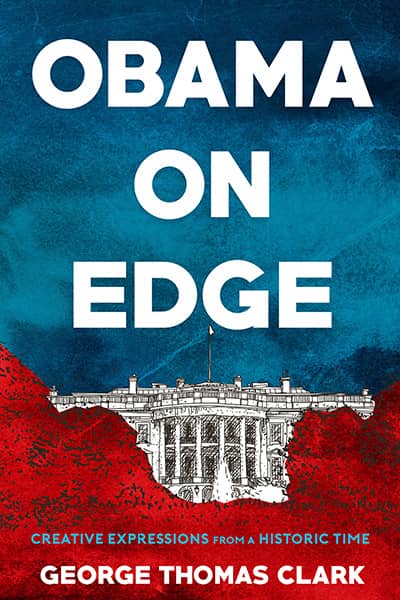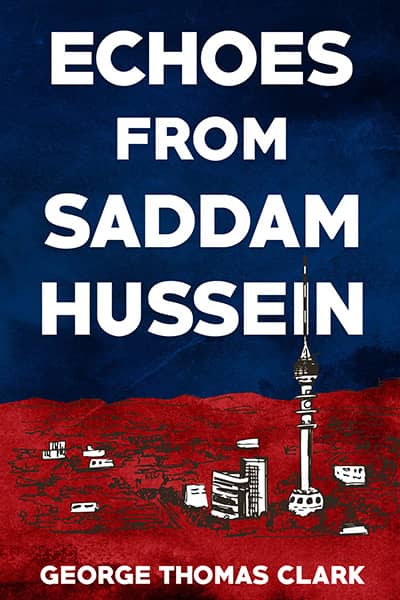Saddam Counters Islamic State
June 15, 2014
Thankfully I’m an empathetic man or I would’ve hammered my driver into the head of the flunky who interrupted my backswing on the gorgeous eighteenth tee at Doral. He said he was an aide to President Barack Obama and urged me to help save Iraq and the Middle East and vital American and Israeli interests. I’d like to simultaneously take my club to the temples of Obama and George W. Bush and his father and any U.S. president or politician except Ronald Reagan, who helped me during our bloody patriotic war in the eighties against Iranian hordes.
“Wait’ll I finish the goddamn hole,” I said.
When I sank a tricky twenty-footer for par, the aide ran up and said, “Mr. President…”
“Not till I’ve had my martinis.”
After being soothed in the clubhouse, I agreed, for two million dollars, to take a phone call from Obama.
“Mr. President,” he said, “The Islamic Army of Iraq and Syria is rampaging through your country, capturing your hometown of Tikrit and the economic hub of Mosul and many other places. Scores of thousands of Iraqi troops are tossing their arms and retreating before the enemy even arrives. I…”
“Silence… Who the hell trained those cowardly Iraqi troops. You Americans did. Ask yourself: would they have run if I’d been in charge.”
“That’s my point. We urge you to return at once to Iraq and replace the weak and divisive President Nouri al-Maliki.”
“After I’ve helped them, Americans often treat me quite rudely.”
“That we sincerely regret, Mr. President. Please give us another chance.”
“Let me explain a few things to you neophytes. Iraq was never really a country, it was a Western concoction, even when I was whipping it into relative compliance. The Kurds in the north had to be gassed, an essential act the U.S. and others condemned me for. Many Shiites in the south also had to be killed to prevent them from aiding Iran. My Sunnis in the center were generally agreeable, and anyone who failed to obey was eliminated. My system worked very well indeed. Now, eleven years after your criminal attack on Iraq, what do we have?”
“I opposed the 2003 invasion, Mr. President.”
“Once in office you’ve behaved like other American presidents – arrogant and heavy-handed. But I won’t further rebuke you. You’re a poor sub-Saharan African who somehow became king of the white men. Your power, and that of your predecessors, is now irrelevant, particularly since you’ve stated you won’t be putting any American boots on the ground. You know that won’t be necessary as long as Saddam Hussein bails your asses out.
“And perhaps I shall. To start, I’d need ten billion dollars for my personal account and hundreds of fighter aircraft and tanks and an array of the latest military equipment. I’m not worried about manpower. Thousands of Iraqis are displaying posters of me and yearning for my return. And when I do, aboard a U.S. military aircraft luxuriously equipped to my specifications, no other political figure will be relevant in Iraq.
“But let me again emphasize what my country is. Due to U.S. incompetence and criminality, which destroyed our armed forces and our institutions, not even I can reconstitute Iraq of the eighties. I can, however, stop the spread of the Islamic State of Iraq and Syria. And I can identify and root out Al Qaeda wherever it exists. I had done so before George W. Bush lied and swore I was embracing them. I shall again purify Baghdad and the Sunni sections of Iraq. But, now, I say let Iraqi Kurds join other Kurds and form a Kurdish state. They’ve sacrificed for it, and they can have it. And, realistically, I also don’t want to fight the Shiites in the south. An increasingly strong Iran would certainly storm into my lap. I’ve accepted I’m not Alexander the Great, that is I’ve tacitly acknowledged I don’t have his relatively weak opposition and am now ready to embrace the possible. My rump Iraq will still be the only Iraq and coexist with the new nation to the north, perhaps to be called Kurdistan, since I recommend they coalesce with those Kurdish regions in northwestern Iran and southeastern Turkey.”
“Turkey and Iran would never permit that,” said Obama.
“In that case, I suppose the United States and Iraq will have to form a mighty union to crush the Kurds and then the Shiites and their Iranian fomenters. Then there’ll be a foundation for peace in the Middle East and, as king, I shall rule with benevolence.”














